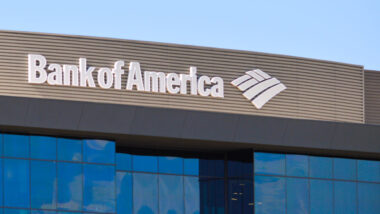
American credit card debt overview:
- Who: The Federal Reserve Bank of New York released its report on household debt for the third quarter.
- Why: The report showed credit card debt among American consumers has reached a record high of $1.08 trillion.
- Where: The report takes into account the debt of consumers nationwide.
Credit card debt among American consumers has reached an all-time high of $1.08 trillion, according to a report from the Federal Reserve Bank of New York.
The record-breaking figure was the accumulation of a year-over-year increase of $154 billion, the largest such jump since 1999, according to the New York Fed, CNBC reports.
In addition, the third financial quarter also reportedly saw an increase in credit card delinquency rates, most notably among millennial borrowers between the ages of 30 and 39. That demographic is also dealing with high amounts of student loan debt.
An increasing number of credit card holders are falling behind on their payments, meanwhile, according to a separate report from the Consumer Financial Protection Bureau which found a higher percentage of balances have become more than 180 days delinquent, CNBC reports.
Nearly 1 in 10 card users in ‘persistent debt,’ CFPB says
Consumers may be experiencing more credit card debt because of higher prices for food, gas and housing, among other things, according to the CFPB, which reportedly found almost 1 in 10 credit card users are in “persistent debt.”
Persistent debt happens when a card holder is charged more in interest each year than what they pay, causing their principal to increase despite payments being made, according to CNBC.
The average annual percentage rate on credit cards in the U.S., meanwhile, is reportedly at an all time high of more than 20%, with rates shooting up amid a string of 11 rate hikes by the Federal Reserve, including four this year alone.
Americans who relied on safety nets provided by the government — such as stimulus money — have also reached a point where any excess funds saved up from the COVID-19 pandemic are mostly gone, according to CNBC.
The New York Fed previously revealed during its quarterly household debt and credit report in August that American credit card balances had surpassed $1 trillion for the first time, meaning the debt has only continued to rise.
Researchers at that time attributed the growing credit card debt to consumers spending more money and having to pay higher prices on account of rising inflation.
Have you experienced credit card debt? Let us know in the comments.
Don’t Miss Out!
Check out our list of Class Action Lawsuits and Class Action Settlements you may qualify to join!
Read About More Class Action Lawsuits & Class Action Settlements:
- $5.6B Visa, Mastercard settlement with retailers upheld
- Bank of America class action claims company canceled automatic bill payments without notification
- Citi to pay $26M fine for Armenian credit card applicant discrimination
- American Express class action alleges company submits hard credit inquiries despite contrary representations















12 thoughts onAmerican credit card debt hits record $1.08 trillion, report finds
please add me
Please add me